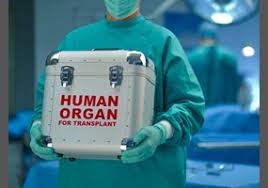When someone very close to you faces a death situation, one would try all ways possible to avert such an occurrence. But then we have hundreds of people who loose their lives on daily basis because of lack of organ transplants. Thousands of persons also require live saving transplant of organs, the problem is that the waiting list is quite long. Legalizing the sale of human organs shall enable patients to search for matching organs, possibly saving them from death within a shorter period and potential medical cost reduction.
Transplants of human organs have come a long way, involving getting to know the functioning of the human body and mechanisms to enable humans live for longer periods. The invention of organ transplants dates back to the ninth century when human beings sewed parts of animals together. There is also a description of a Chinese surgeon Tsin Yue who switched human hearts in the fourth century before Christ. The first organ transplant involved bone to bone transplants in 1878. In the year 1909 there was a first recording of animal to a human being kidney organ transplant.
A rabbits kidney was used which was successful though the patient passed on two weeks after. In the year 2000 close to three hundred thousand Americans were on dialysis, and many of them could be lucky if organ transplants were readily available. As per the statistics in 2003, close to eighteen persons died daily on the wait list, with advanced modern medicine there has been a reduction but still people die on the wait list. Its quite tough to be on the waiting list with several appointments and days of dialysis hoping for some organ transplant while the people close to you watch you fade away is so sad.
Within the United States, close to seventy thousand persons are on the waiting list as opposed to the twelve thousand available kidneys donated annually. The kidneys are donated by deceased persons or sometimes a few living persons which is not sufficient for the people in the wait list. Approximately sixteen thousand people had kidney transplants in 2010 while four thousand five hundred and thirty other died while on the waiting list. According to Drs. Eli and Friedman, as many as hundred thousand persons could be saved yearly through the introduction of a controlled kidney market.
Within the United States an individual in need of an organ transplant is added to the waiting list every eleven minutes. Current advancements in the medical sector have reduced the number of organ transplants creating a deficiency. The donated organs do not meet the demand for organs. Organ transplants are necessary for life. Organs are simply a tissue group that functions together to handle a specific task such as blood pumping within the body. Usually diseases or problems with genetics could fully destroy particular organs while the body is still very healthy.
Organ transplants during such times would be very helpful. As per Donate-A-Life America, for an individual to be a donor of an organ, oxygen and blood must always flow via the organs until recovery time for vitality. Death can only result in weird situations resulting from massive neurological injuries, from huge brain trauma like stroke, aneurysm or fatal accidents. After all efforts to save life have been done and tests conducted to make sure that there is no brain stem activity and a brain death has been declared then donation is possible. An organ is one of the most precious donations one can give to someone.
Organ gifts can also be exchange for money and in fact this would prompt more donations thus saving many lives. Despite the belief that human beings are always good and would do everything to save a life, reality reveals that human beings have had tough moments making hard decisions on organ transplants especially if the organ receivers are persons they do not know and there is no reward for it. As per Benjamin Hippen, who is a nephrologist in transplants, there exist few organs from donors who are alive than one might expect since less persons are sufficiently altruistic to go through surgery for people they do not know.
With economical strains, donation rewards is definitely a win-win occurrence. The American government has donated massive funds to awareness of cancer on yearly basis and over hundred million persons have made blood donations to help fellow human beings. Selling ones organ would definitely save some life hence making no big difference. A black market has been created for human organs within the United States normally involving bodies that are about to be cremated. Organ market brokers enter into weird deals with funeral homes officials to extract the organs before being cremated.
There is no control to such as long as it involves monetary benefits. The human organs might have been drawn from persons with infectious diseases yet the documents shall reveal otherwise. If the sale of human organs was legalized, it would definitely be regulated and both the donor and the patient would be handled by qualified surgeons. This would be safe and also reduce trafficking and illegal body organs sales.
The sale of human organs is a topic that definitely needs further discussion. The world needs to have a controlled human organs market so that patients shall not be forced to rely on criminals to save their lives. The huge budgets for persons on organ waiting list make no sense at all during a time like this when massive advancements have been made within the medical sector. It is much economical to have patients undergo urgent organ transplants as opposed to keeping them on dialysis for longer periods. Also the earlier the better since the individual would be well soon enough to continue contributing to the economy.
In most third world nations the poverty levels have prompted people to the will of selling of their organs for money so that they could supplement their basic needs. Within China, many donors are from prisoners that have been executed where no proper tests are followed. There are also no follow up medical appointments with patients that come from distant nations or areas making it infections risk. It is very alarming since if persons travel to some other country to obtain some organ then fall sick later with no measures to avert this then we are headed to a dangerous direction.
If human organs sale was legal then persons would stay in their countries to receive the treatment and transplants avoiding such risks. That would also be cheaper and would enable for enforcement of proper ethical standards. Reference to oversees treatment centers would also necessitate that the person referring a patient has enough information regarding the center he or she is referring a patient.
Patients should only travel to distant nations where human organ transplant technology is better and their chances of fully recovery are high. There exist disparities in the times taken for organ transplants as per the geographical location. Legalizing and regulating the sale of human organs would definitely affect the black markets and reduce the level of criminal activities on the poor and less fortunate within the society. The ban on organ sales in the United States dates back to 1983 when a doctor in Virginia suggested purchasing kidneys and selling them over to those who could afford. His suggestion was faced with outrage all over. Governments should just provide a platform for willing donors to be able to sell their organs with preset prices. The donations would then be allocated according to the priority on the waiting list with total disregard to the amount of monetary power one has. This would benefit both the donor and the patients thus realizing a reduction on those on the waiting list.
I am almost sure that many of us would be much useful to the world. Many of us watch the news or read the newspapers on daily basis, every time we notice some situation we wish we could help in some way. Persons are perishing daily because of organ deficiencies while governments spend much of their budget sustaining these persons on the waiting list. For me I would not love to be the one to tell a patient that he or she would finally die since it is illegal to trade human organs. If this involves death and live then I would not stick with morals. Human beings truly deserve life chances even if those chances come from other people.




